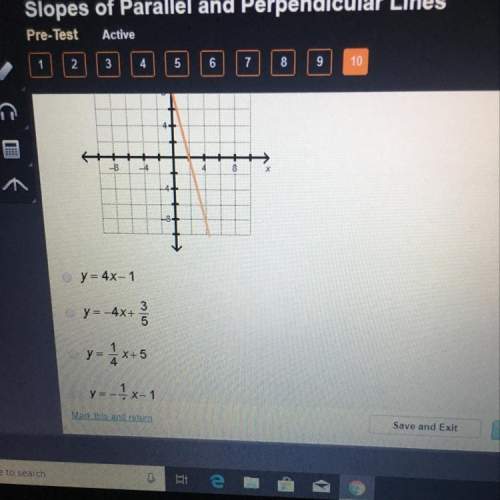
Mathematics, 27.03.2020 20:25 PinkDivaGirl02
Debbie gathered the following evidence.
4(33) = 132 5(33) = 165 6(33) = 198
Which conjecture, if any, is Debbie most likely to make from this evidence?
1) When you multiply a one-digit number by 33, the sum of the digits in the
product is equal to the original number.
When you multiply a one-digit number by 33, the first and last digits of the
product form a number that is three times the original number.
3) When you multiply a two-digit number by 33, the first and last digits of the
product form a number that is twice the original number.
4) None of the above conjectures can be made from this evidence.
ENG
10:56 AM

Answers: 2


Another question on Mathematics

Mathematics, 21.06.2019 15:10
Which of the following is a proper fraction? a. 9⁄8 b. 5⁄6 c. 7⁄3 d. 4⁄2
Answers: 2

Mathematics, 21.06.2019 17:20
7. if the value of x varies directly with the value of y, and x = 3 when y = 21. what is the valu y, and x = 3 when y = 21. what is the value of x when y = 105?
Answers: 1

Mathematics, 21.06.2019 18:00
Me, prove a quadrilateral with vertices g(1,-1), h(5,1), i(4,3) and j(0,1) is a rectangle using the parallelogram method and a rectangle method.
Answers: 3

Mathematics, 21.06.2019 21:40
The sum of the squares of two numbers is 8 . the product of the two numbers is 4. find the numbers.
Answers: 1
You know the right answer?
Debbie gathered the following evidence.
4(33) = 132 5(33) = 165 6(33) = 198
Which conjec...
4(33) = 132 5(33) = 165 6(33) = 198
Which conjec...
Questions





Computers and Technology, 24.07.2019 18:20














History, 24.07.2019 18:20




